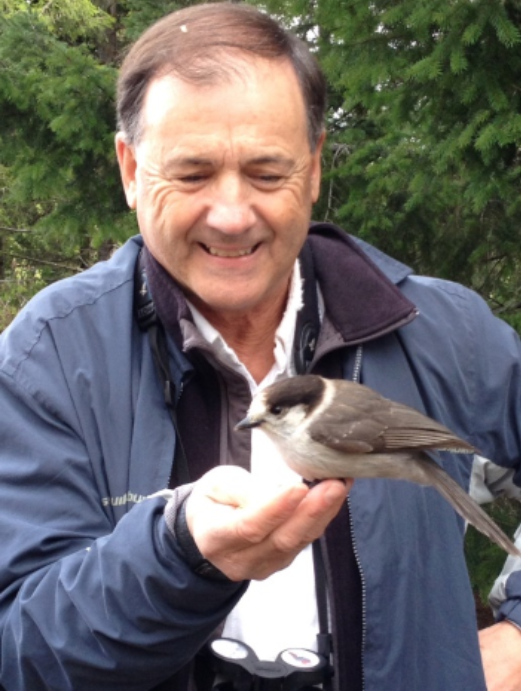Question:
In 2023, Canada suffered the worst wildfire season ever. While the news media provided us with much information on the impact of these fires on humans, I cannot help wonder how they might affect the birds. Can you please comment?
Response:
The most obvious negative impact is the immediate loss of habitat to the flames. And since these wildfires are taking out grasses and trees right in the middle of the breeding season, they are not only directly destroying the homes of the birds in these locations, but the flames and heat also kill the eggs and nestlings both directly and indirectly due to the parents abandoning their nests to save their own lives. Some of these adult birds are not as mobile in the air as others and they may well get caught in the flames. But most birds are able to use their wings to escape the approaching fire. Take those sixty or so American white pelicans that showed up on Vancouver Island this summer, a place where they are not normally found. It is my guess that these birds were likely nesting on a lake in the interior of British Columbia and either the fire or the smoke drove them to leave the area to avoid dying. Judging by the time they showed up on the island, they likely left the eggs and/or young in their nests to die in the fire. Pelicans can easily cover 500 miles in a single day, so it was no big feat for them to vacate the area. But it is not just direct mortality in adults and young perishing in the flames that are concerning, there are also serious consequences from breathing in the smoke. Birds in general have very high metabolic rates and thus, require large amounts of oxygen for their activities. They possess a highly sophisticated and efficient system of air sacs working in conjunction with a pair of lungs very different from mammalian lungs. Not only does the inhaled smoke cause an impairment of this system, but it also damages the tissues sometimes beyond repair. This can also make them more susceptible to various infections. Equally damaging to the respiratory ability is the fact that woodfire smoke contains an untold number of toxic chemicals. To put this into perspective, cigarette smoke has more than 400! We have no idea of the impact of these chemicals on bird health. There is really only one good thing about forest fires—they do lead to a renewal of open habitat which can benefit a select number of bird species. Black-capped woodpeckers, and some owl and warbler species come to mind. But considering the level at which forest fires raged across Canada in 2023, they were undoubtedly a very bad thing for our birds in our country.
David M. Bird, Ph.D., Emeritus Professor of Wildlife Biology, McGill University www.askprofessorbird.com

David M. Bird is Emeritus Professor of Wildlife Biology and the former Director of the Avian Science and Conservation Centre at McGill University. As a past-president of the Society of Canadian Ornithologists, a former board member with Birds Canada, a Fellow of both the American Ornithological Society and the International Ornithological Union, he has received several awards for his conservation and public education efforts. Dr. Bird is a regular columnist on birds for Bird Watcher’s Digest and Canadian Wildlife magazines and is the author of several books and over 200 peer-reviewed scientific publications. He is the consultant editor for multiple editions of DK Canada’s Birds of Canada, Birds of Eastern Canada, Birds of Western Canada, and Pocket Birds of Canada. To know more about him, visit www.askprofessorbird.com or email david.bird@mcgill.ca.



